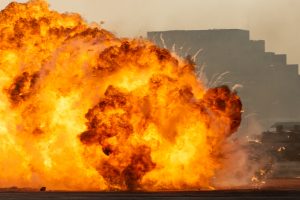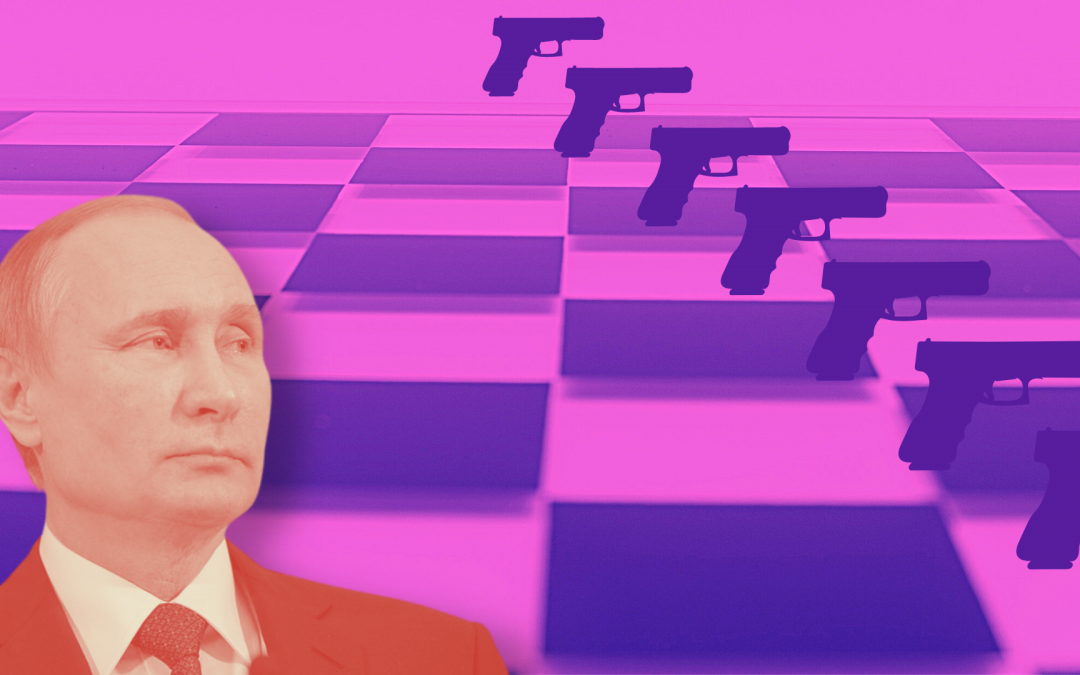Shakespeare was right when he portrayed the frailty of kings. We can use the hollow moves of Putin in Ukraine to illustrate sly cunning in action
For the purposes of this blog, we should remove ourselves from the battlefield. We’re going to examine the Russian incursion into the Ukraine. Only not as a humanitarian crisis, or political outrage, but as a primer on the politics of power.
The stuff of Shakespeare, George RR Martin and Leo Tolstoy.
The meat of grand literature, big lives, and high stakes.
We are in the midst of the kind of geopolitical chess game that has furnished fiction over the centuries.
And, yes, again, to stress, lives are being lost. So, we cannot be too flippant, but we can learn some lessons about the minds of men (of course, men) who imperil others for their own glory and postpone their mortality.
There are clues to their character in their actions, particularly when the tides are shifting against them.
What’s happening now in Ukraine is the endgame. It will be protracted and bloody, but it is in crisis (as every fiction writer knows) that true character is revealed.
This is a turning point, the transition from Act Two to Act Three, where much of the good stuff happens. And in real life it might play out over months, possibly years, and yet decisions are being taken now that foretell of the end and give a glimpse into the minds of madmen in their decline.
Take note. It’s all good stuff for those who hoover up the human condition in extremis for later use in their fiction.
And be aware, also, that small men have the grandeur of the epoch-shaping despots. Some run countries and empires, others run schools, or brass bands, or the layby cherry businesses.
When we talk about war
For reference, there are two kinds of stories of war. Actually, there are likely to be many gradations, but we’ll stick with two. Those stories that utilise war as a game of chess, the Brigadier’s view from the chateau, war as a manifestation of character; and those that satirise or chastise war, usually taken from the viewpoint of the poor bloody infantry or the widow.
We’re looking at Ukraine from the chateau window and examining, in particular, the mindset of a tyrant – Vladimir Putin – and watching, in real time, his cynical, foiled, belittled strategy collapse before his eyes.
And what does he do?
He cannot retreat. He has wealth. But he also has endless pride.
There’s an old saying that is rich for fiction writers who focus on those who aspire to power.
He who rides the tiger is afraid to dismount.
Think of would-be and actual autocrats such as Donald Trump, Robert Mugabe, Nicolae Ceausescu who would upend everything, destroy lives, to stay in power a day longer.
Those who the Archbishop of Canterbury Justin Welby at the Queen’s funeral service contrasted with the selfless dedication of the monarch – those who cling to power and privilege and who will be forgotten and unloved.
But clinging to power is all these people have. Power has come to define them, to prop up or disguise their inadequacies, to heal up whatever wound has hounded them since youth.
Loss of power is devastating
Power, when it wanes, does so with devastating cruelty leaving the formerly powerful, not only powerless but bereft. Those who lose power are lesser people at the end, even emptier than the forlorn scrap which decided to rise to power. Because power corrupts, and so whatever trace of humanity existing before, is eroded by the acid of unchallenged authority.
They are not just back to square one, with all the original hurt but more so because they lost again. Their battered self-imaged was justified. They were always losers.
It is why democracies treasure and ritualise the “peaceful transfer of power” because the handover is the rarity. History tells us time and again, power is ripped away, leaving a bloody scar that can take centuries to heal.
This outcome more perilous for the autocrats than the democrats. Not only do they have a psychopathic and paranoid need to control everything, including the lives and behaviours of their fellows, but in obtaining such powers, they have made enemies.
They trample, they bully, and they hide behind the skirts of the institutions they have manipulating into faux loyalty.
Power is the ultimate protection against legal and physical assault. Just ask Trump. He is scrabbling back into office (he hopes) so he can use the institutions of state to protect him against legal peril – or worse.
See our factfile below to see how it ends for many dictators. It is not pretty.
Putin and the last gasp
And so to Putin. He is losing. He is losing hard.
In fiction, he would lose completely. He would be broken, defeated. He would limp away, do himself in or be found strung from a lamppost in some anonymous suburb. In fiction, there are ends and there are lessons to be taken.
In real life, in Putin’s life, this denouement must be postponed. At all costs.
So, what is he doing? He is creating a narrative he can sell. No-one will be buying but he has the instruments of state that will fall in line to peddle the lie.
He holds bogus referenda in disputed regions (which he still holds, barely). The result is not in doubt. He will declare these regions to be Russian and he will attempt to reclaim the glorious imperative that took him on this adventure in the first place.
He is, he will be saying, defending the Motherland. He will portray the valiant Ukrainian forces as aggressors. He will threaten nuclear war because “the west” threatens his borders. He will pour in conscripts as cannon fodder calling on their patriotism to fuel their defence of a foreign country.
It is grubby. It is transparent. It fools no-one, except possibly Putin himself, and he will gear up the state to burnish the lie so that long after he is gone, no trace of another narrative will be found in the Russian history books.
Glory or eternal shame
It is also slick, and clever, and puts the West in a quandary and buys him time because no-one wants war, certainly no-one wants escalation of war and
The despots and the psychopaths have evolved to be cunning and clever. To act like cornered rats. To identify the weaknesses of the opponents – their good grace, their impatience, their lack of psychopathic indifference – and exploits them to maximum.
He will go where no-one else will go because his very self-image, the carapace he has built up to protect himself, is more precious than life itself. Certainly, more precious than the lives of others.
In fiction, there is victory and glory, or there is defeat and ignominy. In real life, there are sordid compromises, the appeasement of the troublemakers and some kind of muddled geo-political mess the sorting of which will be postponed for a generation or two, until those who remembered it all was are gone to the grave and their voiced warnings are finally silenced.
And it begins again.

The end of the dictators
Adolf Hitler (1889-1945)
On 30 April 1945, with Allied forces approaching Berlin from the west and east after a world war that had seen the death of millions, Adolf Hitler saw the ruins of his dream of a 1,000-year Reich and shot himself in his bunker.
Benito Mussolini (1883-1945)
The man who created the one-party fascist state, a model from which Hitler worked, was ultimately ousted by his own party and placed in custody. Freed by German paratroopers, he tried to flee to Switzerland but he was caught by Italian partisans and shot.
Nicolae Ceaușescu (1918-1989)
Ceausescu was the model of a post-war communist dictator, ruling over Romania for 24 years. He was originally seen as one of the more liberal of the Soviet Bloc leaders but gradually became more authoritarian. As the Soviet Union began to break up, civil unrest broke out, the army turned on the dictator and attempted to flee. After a quick trial, Ceaușescu and his wife were sentenced to death by firing squad on Christmas Day 1989.
Muammar Gaddafi (1942-2011)
The military officer, then 27, seized control of Libya, promising to address the legacy of the foreign nations’ exploitation of the country’s oil reserves. But the wealth completed his transition into a corrupt dictator, loathed by his people. The Arab Spring of 2011 turned into civil war and an alternative government, backed by NATO, was established. Gaddafi went on the run but was killed by fighters loyal to the new regime, his bloodied body dragged around the streets.
Saddam Hussein (1937-2006)
Saddam Hussein’s brutal regime left a trail of the dead, inside his borders and beyond in a succession of failed foreign adventures. After Baghdad fell in the Iraq War, led by US-coalition forces, Saddam went into hiding. Months later, he was dragged from an underground hiding place near a farm and, two years later, he was found guilty of crimes against humanity and publicly executed by hanging.

